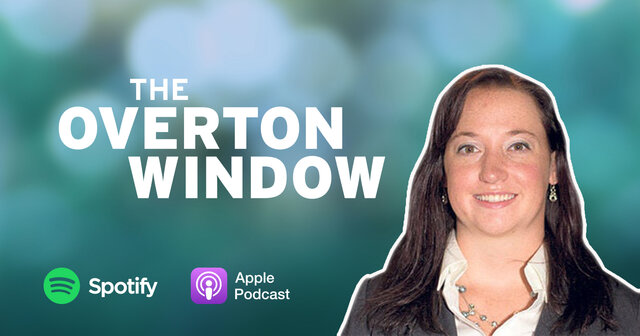
West Virginia is making it easier for professionals to get to work — no matter where they’re coming from.
Jessi Troyan, Director of Policy and Research at the Cardinal Institute, unpacked the significance of a new universal licensing recognition law passed in West Virginia on The Overton Window Podcast.
Too many people are blocked from working simply because their license doesn’t transfer across state lines. “Almost one in four workers require a government permission slip to be able to work,” Troyan says. The problem isn’t just the paperwork. It’s the hoops professionals have to jump through when they move. Even a seasoned worker might be forced to repeat coursework, re-take exams, or pay steep fees — just to prove they’re still qualified.
“If I were a licensed professional moving to Michigan, I would have to possibly go through education again, more training, take another exam to prove that I am a competent professional despite the fact that West Virginia has said so,” Troyan explains. “But Michigan says, ‘No, we don’t trust West Virginia’s judgement.’”
Now, West Virginia is flipping that script. The new law accepts out-of-state licenses for most professions. “If you were good enough for your old state, you’re good enough for ours,” Troyan says. “Welcome to the wild and wonderful. Let’s help you get back to work. Let’s earn that honest paycheck.”
Universal recognition isn’t a new fight for the Cardinal Institute. Six years ago, they began digging into occupational licensing data. They asked practical questions — how many professions are licensed here? What are the education requirements? How much are the fees? The answers, especially when compared to neighboring Ohio and Pennsylvania, weren’t flattering.
“West Virginians do not enjoy the same sort of economic quality of life on average as our neighbors… We have lower incomes. We have lower workforce participation rates.” And licensing rules aren’t helping. “We want more people in West Virginia to be working. We want them to be working good jobs… And yet we are pulling off these bottom rungs of the ladder and hoping that you have an NBA vertical leap to be able to catch the first rung.”
The first attempt to introduce universal licensing in 2020 didn’t even make it to a vote. The Cardinal Institute kept working behind the scenes, helping lawmakers shape the bill. They didn’t start from scratch. Instead, they looked at other states where similar reforms had already passed.
Not everyone was on board. Professional boards pushed back — especially accountants. “They were highly opposed to this: ‘No, we have these great standards in West Virginia, and we can’t go around willy nilly trusting the judgement of these other states in the union.’”
According to Troyan, that resistance often comes down to self-interest. Fewer licensed professionals mean less competition and higher wages for those already “in the club.” But she argues that’s not a good trade-off. “It is not an economic benefit to the entirety of West Virginia that we are artificially reducing the number of professionals who are in the market to be able to provide these services to the state.”
The Cardinal Institute published narratives of professionals struggling to work in the state due to the licensing barriers until, eventually, support from the governor helped push the bill across the finish line. And for professionals moving to West Virginia, it means one less hurdle — and a quicker path to getting back to work.
Listen to the full conversation on The Overton Window Podcast.
Permission to reprint this blog post in whole or in part is hereby granted, provided that the author (or authors) and the Mackinac Center for Public Policy are properly cited.
Get insightful commentary and the most reliable research on Michigan issues sent straight to your inbox.

The Mackinac Center for Public Policy is a nonprofit research and educational institute that advances the principles of free markets and limited government. Through our research and education programs, we challenge government overreach and advocate for a free-market approach to public policy that frees people to realize their potential and dreams.
Please consider contributing to our work to advance a freer and more prosperous state.

Donate | About | Blog | Pressroom | Publications | Careers | Site Map | Email Signup | Contact